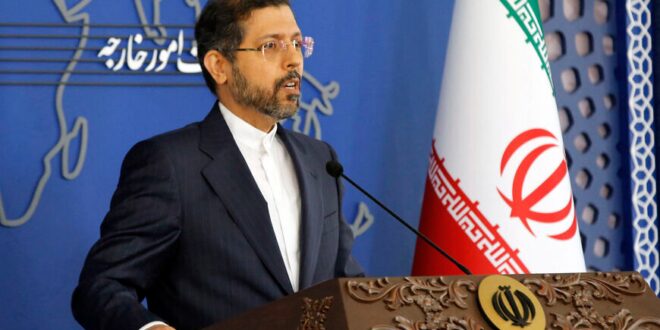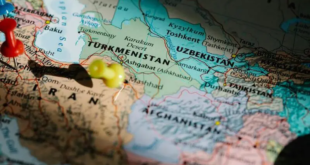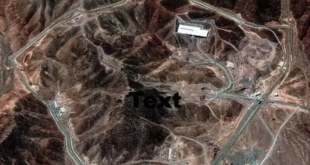Iranian officials said most of the nuclear agreement is ready and the United States needs to make a political decision.
Iran’s Foreign Ministry spokesman Saeed Khatibzadeh spoke to reporters about the latest updates on the nuclear talks in Vienna between Iran and the world powers to revive the 2015 Joint Comprehensive Plan of Action (JCPOA).
Khatibzadeh said lead negotiator Ali Bagheri had recently traveled back to Tehran to conduct “consultations,” specifically with the Supreme National Security Council (SNSC). Khatibzadeh said the SNSC, which the president chairs, “leads the negotiations.”
Khatibzadeh said that “the draft of the agreement had been ready and it was necessary to carefully review it.” He added, “Unfortunately on three or a few primary issues, the Western side and the US have not made a political decision.” One of Iran’s main talking points has been that they are ready to sign the deal and technical issues have been mostly resolved, but the United States needs to make “a political decision” to re-enter the deal.
Despite the claims that primary issues remain, he claimed the draft was “98% written” and the remaining issues were related to the removal of sanctions, guarantees — presumably about another US withdrawal — and “political claims about Iran’s peaceful nuclear program.” Khatibzadeh said the text of the agreement continues to be the JCPOA, and the talks are between the original countries minus the United States in order to guarantee that the United States returns. The Trump administration exited the deal in 2018.
Khatibzadeh said the opposing sides, meaning the United States and the three European countries that are part of the talks — the United Kingdom, France and Germany — “have no doubts about our red lines and we hope they do not stretch this out any longer.”
Abufazl Amouie, a member of Iran’s Foreign Policy and National Security Commission, also spoke to Iranian media about the nuclear talks. He said the United States continues to resist removing all of the sanctions put in place under the Trump presidency under the “maximum pressure” doctrine. Not all of those sanctions were nuclear-related, however, and the United States has been resistant to budge on this issue. Amouie said Iran’s position is that everything associated with “maximum pressure” must be removed.
Amouie also said that without guarantees from the United States, the current deal will be an “unstable and temporary” deal. He said Iran’s compliance has guarantees associated with it, but the United States does not have guarantees and verifications. He said Iran has made proposals for guarantees that are political, economic and technical, but the United States has not shown flexibility on these proposals. One of the problems for the United States is that the deal is not a treaty and was signed originally through former President Barack Obama, which made it easy for Trump to exit the deal. If a Republican is elected president, it is not unlikely that they too would exit the deal.
 Eurasia Press & News
Eurasia Press & News


